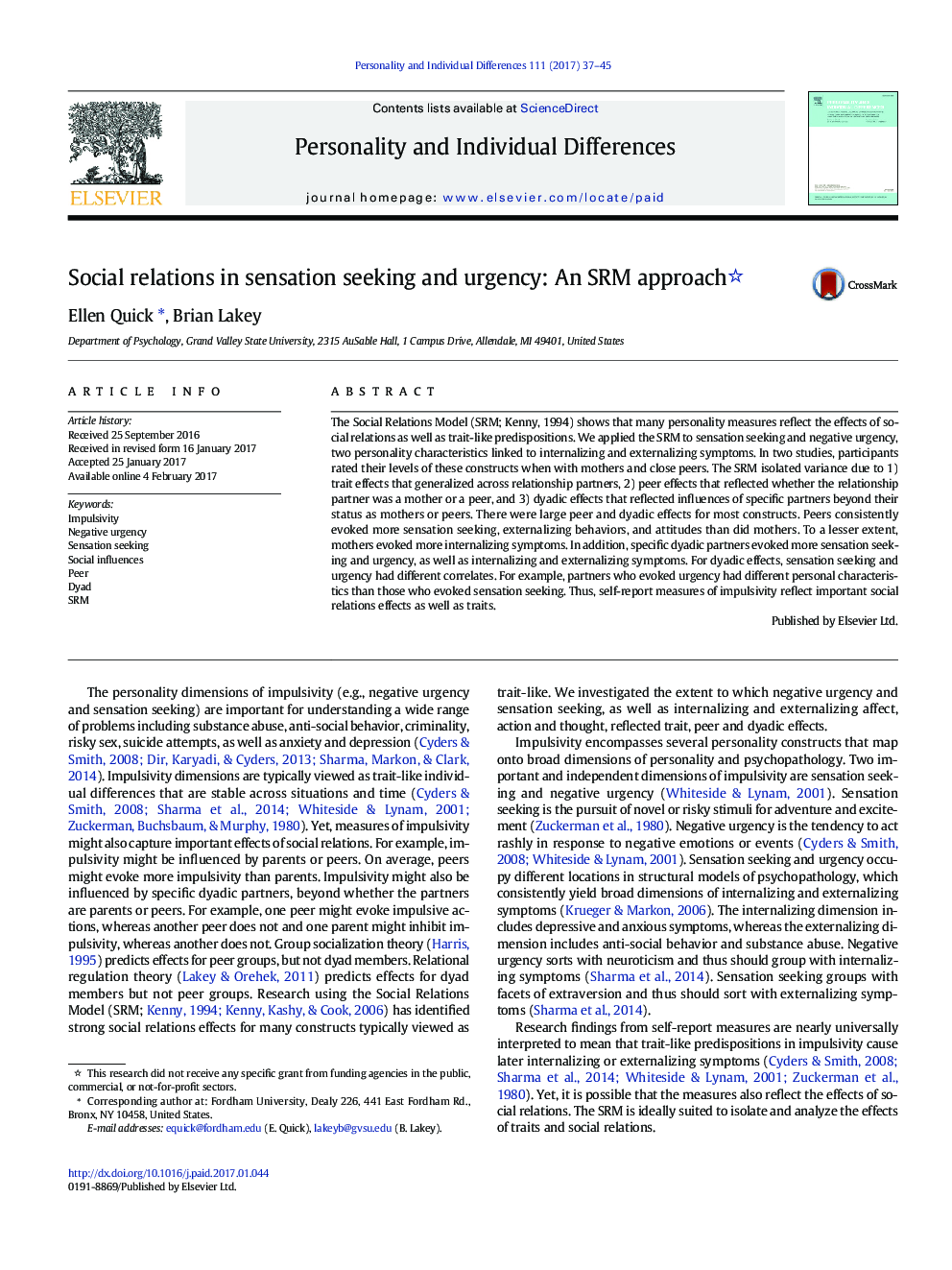| Article ID | Journal | Published Year | Pages | File Type |
|---|---|---|---|---|
| 5035918 | Personality and Individual Differences | 2017 | 9 Pages |
â¢Measures of impulsivity are typically seen as reflecting only trait effects.â¢Two studies found strong peer and dyadic effects on impulsivity.â¢Partners who evoked sensation seeking evoked externalizing symptoms.â¢Partners who evoked negative urgency evoked internalizing symptoms.
The Social Relations Model (SRM; Kenny, 1994) shows that many personality measures reflect the effects of social relations as well as trait-like predispositions. We applied the SRM to sensation seeking and negative urgency, two personality characteristics linked to internalizing and externalizing symptoms. In two studies, participants rated their levels of these constructs when with mothers and close peers. The SRM isolated variance due to 1) trait effects that generalized across relationship partners, 2) peer effects that reflected whether the relationship partner was a mother or a peer, and 3) dyadic effects that reflected influences of specific partners beyond their status as mothers or peers. There were large peer and dyadic effects for most constructs. Peers consistently evoked more sensation seeking, externalizing behaviors, and attitudes than did mothers. To a lesser extent, mothers evoked more internalizing symptoms. In addition, specific dyadic partners evoked more sensation seeking and urgency, as well as internalizing and externalizing symptoms. For dyadic effects, sensation seeking and urgency had different correlates. For example, partners who evoked urgency had different personal characteristics than those who evoked sensation seeking. Thus, self-report measures of impulsivity reflect important social relations effects as well as traits.
